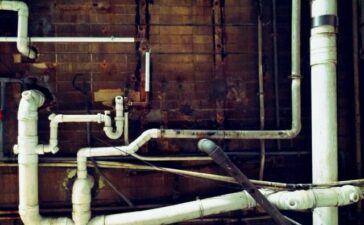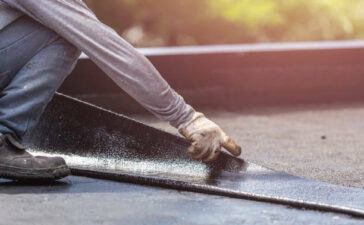The air conditioner is one of the most crucial home appliances. It helps improve indoor air quality, prevent health complications such as lung cancer and asthma, minimize high humidity, and maintain optimal temperatures. However, the heating and cooling system may fail to function correctly without proper maintenance, increasing the utility bills. Read on for 10 ways to improve your air conditioner’s efficiency and keep utility bills at the minimum.
Schedule regular maintenance
The best way to maximize your air conditioner’s efficiency is by scheduling regular inspection and maintenance with reliable contractors from heating companies near you. Professional contractors will conduct an air conditioner performance check to determine issues with your system and fix them before they escalate into irreparable or expensive damages. This ensures your unit stays in excellent condition for as long as possible.
Clean or change the air filters
Your air conditioner needs to achieve maximum airflow to operate at optimal efficiency rates. It is fitted with air filters to help trap pet dander, dust, bacteria, and debris. However, the unwanted particles accumulate in the air filters over time, clogging the units. This compromises your home’s indoor air quality and reduces airflow, making the air conditioner work harder to maintain the desired temperatures. To avoid spending thousands of dollars on repairs due to increased wear and tear or energy bills, you should clean or change the air filters every three months.
Close all doors and windows
It is tempting to leave your doors and windows open, especially on sunny days, to let in as much fresh air into the house as possible. However, this compromises the efficiency of your air conditioner unit since the cool air from the AC escapes through the open doors and windows. Be sure to close all windows and doors when the air conditioner is running to reduce energy bills and improve efficiency. If you want to air out your space, ensure that you switch the air conditioning system off first.
Keep heat-producing appliances away from your thermostat
The location of your thermostat has a significant impact on your air conditioner’s overall efficiency. When you place heat-producing appliances such as refrigerators, cookers, or television near the thermostat, you trick the system into ‘thinking’ that the home needs to be cooled more. This prompts the air conditioner to work twice as hard to maintain optimal temperatures. Over time, you will incur more costs due to increased energy consumption and wear and tear, so you should avoid positioning your thermostat in an area exposed to a large amount of heat or near heat-producing appliances.
Power down electronics
Keeping heat-producing appliances away from the thermostat is not enough. You further need to power them down. Be sure to turn electronics like media systems, computers, exercise equipment, and machinery off when you are not using them. This prevents them from generating much heat into your space, helping the air conditioner use less energy to cool the home.
Turning off the electronics when not in use is also an effective way to cut electricity costs. According to the U.S. department of energy report, plugged-in devices contribute five to ten percent of the overall residential energy bills.
Vacuum and unblock your vents
Blocked vents increase air pressure in the duct system, reducing airflow throughout the home, compromising the air conditioner’s efficiency. Be sure to vacuum the indoor vents regularly to remove dirt, dust, and debris that could clog the units. You should also keep toys, rugs, blinds, and dressers away from your vents to avoid blocking them.
Invest in ceiling fans
One of the most effective ways to improve the efficiency of your air conditioning system is by installing ceiling fans. Ceiling fans distribute cool air throughout the space, helping the AC maintain optimal temperatures. They also increase your thermostat temperatures by four degrees without compromising the home’s comfort. During summer, ceiling fans turn counterclockwise, pushing cool air towards the ground, which creates a chill effect around the house. Be sure to invest in smart ceiling fans that connect to an app on your smartphone to allow you to adjust the system according to your preferred schedule.
Invest in LED bulbs
If you are currently using traditional light bulbs such as compact fluorescent lightbulbs (CFLs) and incandescent bulbs, you should consider switching to light-emitting diode (LED) bulbs. Compared to conventional bulbs, LED bulbs do not only use less energy to light your home. They also produce less heat, so they put less stress on cooling the space in your home’s air conditioning system.
Adjust your thermostat
There’s a good chance you will not notice any change if your air conditioners go up or down by a few degrees. However, this could improve your AC unit’s efficiency and significant energy savings. Consider adjusting the AC 5-8 degrees higher during winter and lower in summer.
For more savings, consider investing in a programmable thermostat. A smart thermostat allows you to adjust your home’s temperatures based on your preferred schedule. It increases or lowers the indoor temperatures whenever it detects your presence or absence from the home. A programmable thermostat can also be linked to your mobile phone, allowing you to control temperatures remotely, even when not in the house. By investing in a smart thermostat, you could save up to ten percent of your annual heating and cooling bills.
Keep the air conditioner on
Most people turn the air conditioning system off, especially on cooler summer days, to reduce energy consumption. However, switching the AC off leads to the accumulation of moisture in the atmosphere. Once turned on, the air conditioner will work harder to warm the space and eliminate excess humidity. Ensure that you keep the air conditioner on at 78 degrees Fahrenheit to maximize efficiency.
Endnote
You do not have to spend thousands of dollars on maintaining your central air conditioning system investment. Schedule regular maintenance and inspection, clean and replace the air filters, invest in LED bulbs and ceiling fans, close windows and doors, power down electronics, and keep heat-producing appliances away from the thermostat to maximize the efficiency of your air conditioner.







